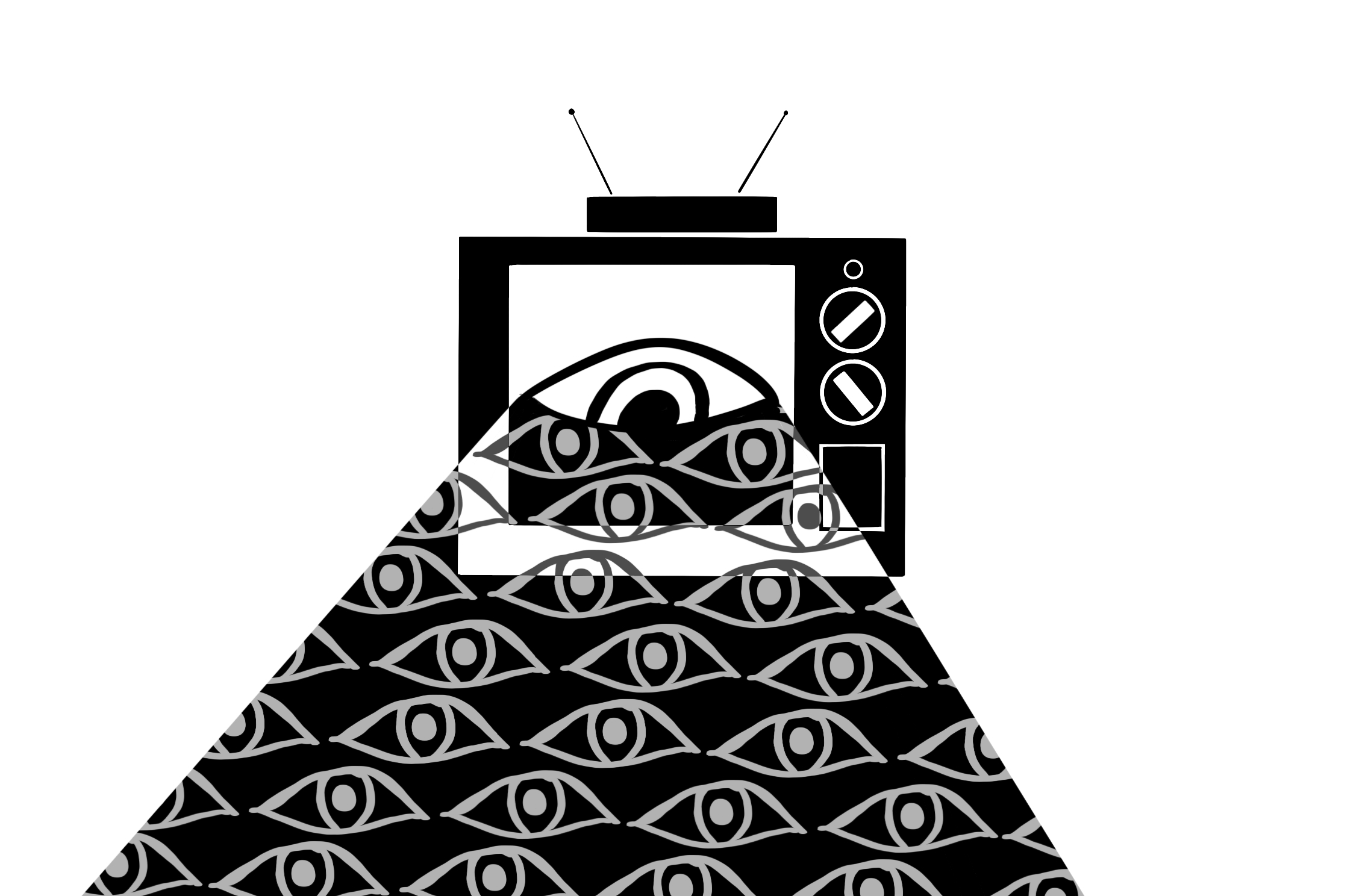Ode to a black box: meditations on virtual reality
December 1, 2023
 Henry Abbott
Henry AbbottWhat once was a necessary distraction for me over the course of the pandemic, and a source of my unfiltered passion for the emergence of new and exciting tech, my VR headset now sits mostly unused at the back of my apartment’s closet. I pulled it out recently to write this column, dusted it off (as, believe it or not, Meta devices can age) and put it on. I expected incredible entertainment and a mild headache. What I did not expect to find was a bolt of clarity: an answer as to why I may have put it away in the first place.
What I found was the game “Not For Broadcast,” an immersive action-adventure experience in which you act as the lead editor for a live and blisteringly paced TV news program. Its controls are diverse yet intuitive in that unique-to-VR way. I could turn left and smack a button that would select and switch between my multiple cameras; I could pound my fist on my large desk’s middle console to censor f-bombs before they got leaked on air; and I could fiddle with knobs to my right on all the transceivers, to tune their feeds’ fickle frequencies and to keep the show alive. I would do all I could to maintain our viewers and ratings, and also my job.
After these busy news days, back at home, my character could watch the telly on the La-Z-Boy and twiddle their thumbs. But this less breakneck part of the game was not so docile—my character would also have to make some tough decisions. For one, they would have to decide whether or not to allow a family member to leave the country amid political shenanigans and volatile cultural change. Luckily, the game provided me (and my overworked character) with the opportunity to zoom out and to think things over. I had access to my own back room and the unedited rushes (camera feeds) from each news day, and so I had the time to hear, to pick apart and then to analyze—without actively participating in—the debacle unfolding before me in my character’s own deteriorating country.
As the news cycles progressed and my protagonist’s home life grew more chaotic, I began to feel that the game required from me two very distinct, yet equally crucial, modes of thinking. The first helped me to perform at “work,” and to experience the fun of being immersed in the game’s mechanics. I’d have to dive into the day’s action, make tactical choices in real time and balance the varied responsibilities of each edit: I’d include more cuts when we filmed a dance video, for example, and be sure to include reaction shots while filming celebrity interviews.
This kind of thinking reminded and still reminds me of how I feel when I sit down to program. When at the computer, I can get lost in problem solving, as my own personal context and ambitions are both now “black boxes,” systems that can be viewed entirely based on their inputs and outputs.
In this sense, it’s a true escape. My goal is to function within a predetermined, quantifiable world. It’s to partake in a system or an idea in which my own scope and implementation is fully concrete. And so it’s no wonder why I had no idea what the speakers on the broadcast had really said or what it all meant, as I was so caught up in making it work. My presence was all over, but I was not present.
The second aspect of the game, with its space for analysis and the pressing need to make deliberate life decisions, was barebones in its mechanics—my mental activity was only sparked by the game, the ramifications and extent of their intrigue were all up to me to come to terms with at my own pace.
This kind of thinking reminded me of how I feel when I write. In this setting, the form and context for my function are subsumed by an ongoing, deeply personal project. Why I write is not only to complete a specific task, or to produce a particular product—it is also my job to grow by means of doing, in a way entirely independent of it. It’s to grow as a communicator, as an empathetic thinker and just in general. It’s growth towards making the next tough decision and approaching the next blank page, in asserting that in what I do with my time and effort there is actually value.
So when I took off the headset, I all but threw it across the room. The experience I had just had was incredible. But at the same time, it left red compression marks all over my face. I felt the urge to incorporate it, somehow, into my own real life. And that’s why I’m writing about it now. To help find that balance. To find the humanities in even the most exciting and immersive of tech.

Comments
Before submitting a comment, please review our comment policy. Some key points from the policy: